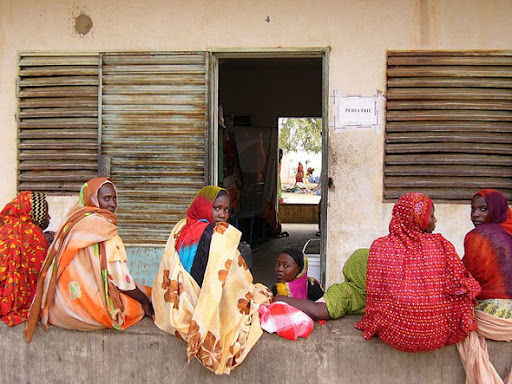On Friday, November 20th, 120 representatives from the maternal health community, the U.S. and around the world, gathered for an all day meeting at the Woodrow Wilson International Center for Scholars to discuss the report,
Tackling the Biggest Maternal Killer: How the Prevention of Postpartum Hemorrhage Initiative Strengthened Efforts Around the World. This report describes the challenges and successes of the U.S. Agency for International Development (USAID) funded
Prevention of Postpartum Hemorrhage Initiative (POPPHI).
The five-year POPPHI project was executed through the support of many partners whose main goal was to catalyze the expansion of active management of the third stage of labor (AMTSL) worldwide. The conference convened experts and advocates in the field of maternal health, to share best practices, new innovations, and future challenges for tackling maternal health’s leading killer: postpartum hemorrhage (PPH). Panelists included POPPHI field partners such as International Federation of Gynecology and Obstetrics, The International Confederation of Midwives, the World Health Organization, and international researchers.
Preventing Postpartum Hemorrhage: AMTSL
“We need to work on women postpartum–after birth we leave them,” argued Deborah Armbruster, POPPHI Project Director. Due to the fact that many women in the developing world give birth at home or in local clinics that lack the sufficient resources to prevent postpartum hemorrhaging, approximately 132,000 women die annually. Fortunately, effective and feasible interventions such as those established by POPPHI have been proven to save lives.
Active management of the third stage of labor (AMTSL) includes three factors that, when used together, can avert postpartum hemorrhage, including:1. Administration of uterotonic drugs (including oxytocin – the most preferred drug)
2. Controlled cord contraction
3. Uterine massage after the delivery of the placenta
POPPHI’s “BOLD” Approach
In collaboration with its partners, POPPHI implemented country-level and global programs to scale up AMTSL. Driven by the “BOLD” approach, Armbruster described how the initiative provided overall frameworks and approaches for strengthening PPH interventions by Building on evidence, Obtaining consensus, Linking partners, and Demonstrating to policymakers AMTSL’s feasibility.
Additionally, POPPHI provided learning materials such as toolkits, fact sheets, posters, and guides that were used to train providers and increase their use of AMTSL. A pilot project on Uniject (a single use needle pre-prepared with oxytocin) was also executed in Mali. Uniject was shown to be acceptable and successful with birth attendants there, and the study is now being replicated in Honduras.
Voices from the Field
Representatives from Argentina, Bangladesh, Ghana, Guatemala, Peru, and Mali presented their country results with the POPPHI project–concluding that the initiative served as a catalyst for upscaling AMTSL. Dr. Abu Jamil Faisel, Project Director and Country Representative of EngenderHealth in Bangladesh, discussed how the project helped to break through misperceptions that often prevented women from wanting to use misoprostol. In Ghana, policymakers worked with program managers and drug suppliers to register misoprostol in the country’s essential medicine list and updated guidelines to reflect best practices. While each country’s experiences were unique, the importance of partnerships was common to successfully upscaling AMTSL in all locations.
Partnerships: Critical to Success
Integrating maternal health indicators directly into program design is imperative to upscaling AMTSL, argued Niamh Darcy, Director of POPPHI Monitor and Evaluation. Additionally, Darcy argued that the success of POPPHI is due to the project’s emphasis in working with all levels of partners, particularly facility providers. Working with the supportive supervisors at facilities is necessary according to Darcy because this group is ultimately responsible for executing active management and recording project outcomes.
Identifying African experts who have taken leadership and ownership of the project has been instrumental in POPPHI successfully disseminating results at the regional, national and international levels argued Doyin Oluwole, Director, Africa’s Health in 2010. Partnering with local champions as well as policymakers has enabled many of the country projects to build capacity and upscale AMTSL.
Building on Lessons Learned
“A key lesson we have learned is that, when there is political commitment, AMTSL is rapidly scalable,” stated Lily Kak, Senior Maternal and Newborn Health Advisor, USAID. Changing behaviors and practices takes significant amount of resources and time commitment, however, POPPHI demonstrates that partnerships and research can be used to upscale AMTSL and change policies more efficiently.Photo: Women wait outside a maternity ward in Chad. Courtesy of Flickr user mknobil.
 A Publication of the Stimson Center.
A Publication of the Stimson Center.




